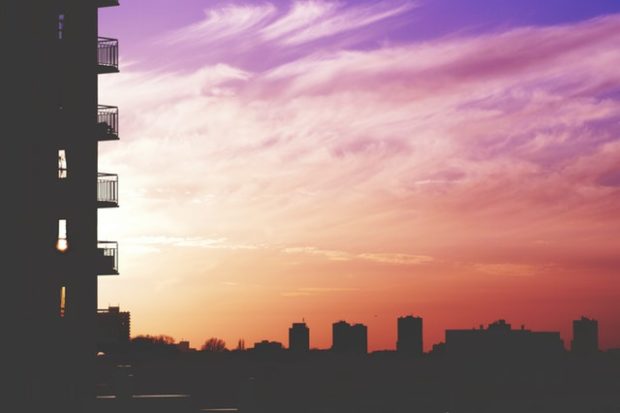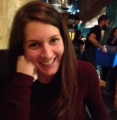You have no items in your cart. Want to get some nice things?
Go shopping
There’s a man standing on a crowded London street. There are people everywhere, and he is shouting. The words coming out of his mouth are: ‘Does anybody need somewhere to stay? I have space at my house. Anybody is welcome to stay at my house for as long as they like. Anybody.’ Can you imagine being that person? On the 15th June 2017, I saw a man do just that.
It’s early March 2018, and for some reason (most probably procrastination) I’ve decided it’s time to give my room a spring clean. I’m wiping down the surfaces, and as bowl after bowl of water blackens with dirt, I’m finding it hard to believe that anything ever looked clean. But what’s troubling me are the words of my ex-housemate who occupied the room before me. When she left, and I managed to wangle an upgrade to the big room, she said, ‘I know this isn’t a very nice, but maybe you should ask the landlord to repaint before you move in. There’s a slight layer of black all over everything.’
‘Since Grenfell,’ she added.
It’s not the first time I’ve thought about Grenfell. Usually, the first thing I see as I leave my flat in the morning is the blacked-out hollow shell of the tower. I look at the white silhouettes moving around inside, the futuristic forensic suits, and wonder what they could possibly be seeing. It’s nearly a year on, and even during the short walk from my flat to the tube station, reminders are plentiful, whether it’s the ‘Justice4Grenfell’ graffiti – scribbles of ‘400 dead’ have recently been added – or the giant NHS poster that reads ‘Have you been affected by Grenfell?’, or the laminated posters reminding passersby that this is a site of great loss, and not to take photos. The Latimer Road station announcements even ask you to desist from taking photographs of the site, as it distracts the drivers. Are the photo takers really so plentiful?
On Wednesday 14th June 2017, I found myself awake at 3.30 a.m. There’s a small rack of Boris bikes below my bedroom window, and chatty night-time travellers will often cause me to stir during the night. Bleary-eyed, I peered out the window, hoping that the sight of me would scare away the noise-makers. Instead, the road was full of people. It was a street party I hadn’t been invited to. People were there in jogging bottoms, dressing gowns, high-vis jackets. And as my sleepy brain came to, I realised not just that, but ten ambulances. Ten.
I still have the WhatsApp conversation between my housemate and I from that night: Any idea what’s going on?. I’m so confused was the message I received moments later, and then, Oh my God, did you see that?
A small army of riot police raced below the window before turning down the alleyway that runs beside our block of flats. I Googled ‘terrorist incident West London’, and at the same moment we both sent each other the news report – ‘Fire engulfs tower block’. We crept out of our rooms, meeting in the hallway, wrapped in dressing gowns; our bare feet padding the tiled floor towards the front door. And there it was, the blazing monster. ‘It’s so awful’, were the words we repeated to each other. Stretcher after stretcher raced down the alleyway, and we braced ourselves for what we would see when they returned.
It’s a strange thing to watch something extraordinary and not photograph it. I did take one photo, I have it on my phone still, but I’ve never shown it to anyone. Because why would you want to photograph people dying? Instead, when pictures appear in the newspapers or online, I squint, work out the landmarks, and point to my flat.
The news reports were saying that people could be heard and seen moving about inside the tower. Although we were not close enough to hear, we were close enough to see. It was at that point, with a chill, we chose to stop watching.
What do you do while your neighbours are burning alive? By 5 a.m., someone had come up with an answer: ‘Get Water’. I passed my 12-year-old neighbour on the stairwell. ‘We’re getting bottles of water’, he told me with an excited sense of purpose. And it was true. There was something to be done. Trolley loads of supermarket-packaged bottles of water were pushed through the alleyway. Men hobbled across the street laden with plastic bottles. For the survivors or rescue workers, presumably. Where you get that much bottled water from at 5 a.m., I do not know. But the community delivered.
By morning, the streets were awash with people, watching, or busying themselves with ‘something useful’; but mostly we were simply repeating the words: ‘It’s so awful’.
Ducking the police cordon, I texted my colleagues in the morning to tell them I’d be late. ‘The tube station is closed because of the fire’. The fire didn’t yet have a name. Recently, I overheard someone saying, ‘Can you believe we went to work on the day of the fire?’ And news reports told us about school children who escaped the blaze and went on to sit exams the next day.
The stories of bravery, horror, and survival came later. The mother so desperate she threw her baby from the ninth floor, the woman and child who survived on the 11th floor in a bathroom filled with running water; and the family found huddled in their neighbour’s bed. It’s a web of deeply personal experiences for those involved. People often say, ‘Can you imagine!’ No, for all that I read, and all that I saw, I still cannot imagine. Some experiences are so extreme that for all we try to grasp with our fingers outstretched into the abyss, our understanding will never truly reach across the void. Two days after the fire it was my birthday, and I set off out of London, heading for a beach with the sun on my skin and wind in my hair, and very much alive.
It may surprise you to hear that when I think of Grenfell, it’s not the blazing tower I think of. I think of the man who stood in the street and invited anyone who needed a place to stay to come and live with him.
The dwindling light caught blond strands of his hair hidden amongst grey. He was shabby, in an un-ironed blazer, and the goodwill beamed out of his face. No-one took up his offer. Disappointed, he moved off further down the street. He wasn’t the only one. I saw several people announce words of a similar sentiment. But none as passionately as him. I imagined he lived in one of the large, grand townhouses nearby. Like the one that later became graffitied with the words, ‘Hundreds homeless, while this house is empty’.
It takes ten minutes to walk the length of my road, if not a little longer, and by the day after the fire, donations were stacked the width of the pavement, the length of the street. Some brought supplies, cars full of nappies, toilet paper, sanitary towels, toothbrushes. Others brought sequinned ball dresses and high-heeled shoes. Bin-liners and wheelbarrows full. We were so keen to help.
No-one was in charge and no-one knew what to do with it all. My housemate, with no qualifications, other than a loud voice and a lot of common sense, suggested that we sort the clothes into Men’s, Women’s and Children’s, and soon hundreds of us were tearing bags open and sorting. I’m not sure there are many communities in the world more diverse than West London, but that evening, with the tower still burning behind us, we were united, the hundreds of us who turned out to help.
People brought food for the volunteers. No-one ate it. We were all there for the victims. Wherever they were. At 9 p.m., water bottles were handed out, and a man gave a small speech: ‘Whatever you believe, let’s break the fast together.’ We beamed like the man, and sipped our water together. It was Ramadan, of course, which is often heralded as the lucky reason more people didn’t die. I don’t suppose anything feels lucky to those that lost.
There’s a YouTube video of a woman who returns exhausted from volunteering all day. She’s hysterical, and she screams, ‘Where are the victims? Where are the survivors? They’re not here.’ I later heard that trucks from Save the Children and Oxfam came at night-time to collect the donations. They will have had enough to stock every charity shop in London.
In the weeks that followed, the handmade ‘Missing’ posters appeared everywhere. The smiling faces of children who were probably never going to reappear lined railings and lampposts. Eventually, these gave way to posters offering yoga or guitar lessons – free for victims of Grenfell. Absurd or kind, I’m not sure. Now, we have professionally printed banners of children’s artwork that remind us we’re a community. There’s no memorial site for the victims of Grenfell, just the blackened, hollow shell of the imposing tower that you can see for miles around (and, of course, take pictures of, should you so wish to).
The following winter brought some of the most bitterly cold days and nights seen in years, and as I made my way hurriedly to the nearest tube station, wrapped in a coat and scarf on a snowy February day, I saw a homeless man drop to his knees in front of me. Between me and him was a young woman. ‘Please help me,’ he said to her, ‘I’m begging you’. And he meant it. It was so cold over those few days as we endured ‘The Beast from the East’, I could believe that he might actually die if left on the streets. I thought of the man with the un-ironed blazer and beaming smile, all those months ago.

About Alex A
Having recently graduated from Oxford University, Alex lives and works in Oxford and London and enjoys writing flash fiction, poetry and short stories.




